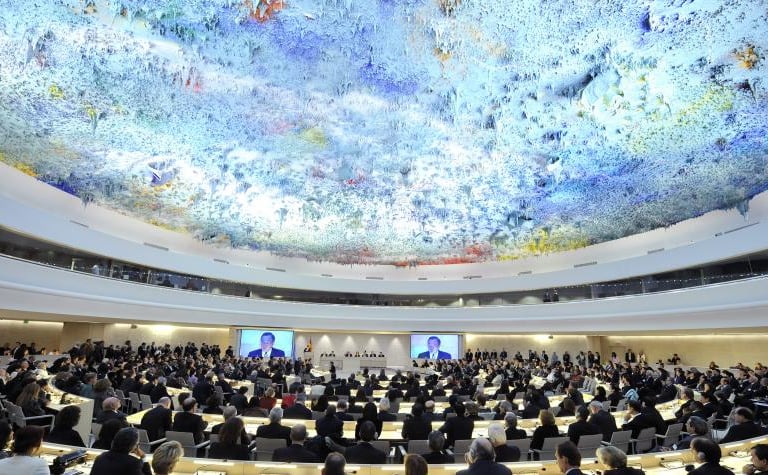UNHRC criticises BIOT handover deal for ignoring Chagossian perspectives
In October 2024, the UNHRC released a statement raising concerns over the lack of consultation with Chagossians in response to the announcement of a deal between the UK and Mauritius over the sovereignty of the Chagos Islands.
NEWS FROM THE OVERSEAS TERRITORIESBRITISH INDIAN OCEAN TERRITORY
In October 2024, the United Nations Human Rights Council (UNHRC) released a statement raising concerns over the lack of consultation with Chagossians in response to the announcement of a deal between the UK and Mauritius over the sovereignty of the Chagos Islands. Whilst the UNHRC welcomed the UK's willingness to enter negotiations, the communiqué expressed grave reservations over the omission of Chagossian viewpoints during negotiations. In the press release, the UNHCR praised the talks as being a ‘positive development toward the decolonisation of the Chagos Islands’, but with the essential caveat that any finalised agreement must have been the product of ‘effective and meaningful participation of the Chagossians’.
Although the claim that transferring sovereignty of the Chagos Islands to Mauritius legitimately constitutes ‘decolonisation’ is itself a dubious one, the present deal fails to satisfy even this slanted definition of the term. Under Mauritian law, it is forbidden for anyone to contest the government’s claim to the Chagos Islands, with the threat of lengthy custodial sentences for anyone arguing against that position. Additionally, even identifying as Chagossian rather than Mauritian carries the risk of up to ten years imprisonment. As a result of this suppression of freedom of speech in Mauritius, it was imperative that the UK permitted an honest and free discussion between the Foreign Office and Chagossians so that their voices could be properly heard.


The UNHRC in session
Yet the opportunity for meaningful dialogue to take place has not been properly provided, with only token outreach taking place through brief Zoom meetings. Whilst the UNHRC underscored the fact that any deal must ensure that ‘all Chagossians have the right to return to live in the Chagos Islands, including Diego Garcia’, no such guarantee has been included in the proposed agreement. According to the joint statement between the two countries, Mauritius is ‘free to begin a programme of resettlement’ but is under no obligation to do so. Perhaps more insultingly, Chagossians are to be offered the opportunity by the British government to undertake brief ‘visits’ to their homeland even as the Foreign Office refuses to offer any cast iron guarantee that they will be able to return.
For a deal vaunted as being a positive step towards ‘decolonisation’, the substance of the agreement offers very little for the Chagossians themselves. If the UK Government wishes to respect the UNHRC’s opinion, then the present deal must be scrapped, as it fails to meet the criteria laid out by the organisation. Anything other than a comprehensive consultation with the Chagossian community constitutes an aggravation of the injustice suffered in the 1960s, not a remedy.
